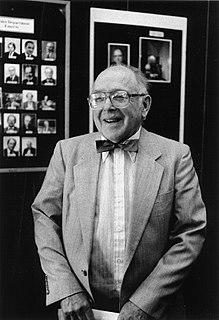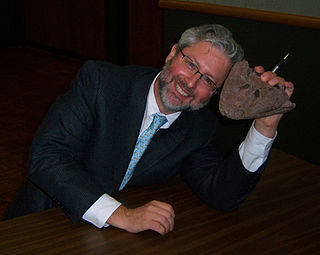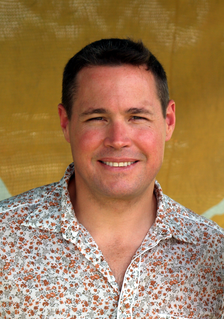A Quote by Graciela Chichilnisky
We know little of the consequences of the geoengineering process, such as spraying particles into the atmosphere that shade the planet from the sun's rays and could decrease its temperature. But this process is how dinosaurs disappeared from the Earth about 60 million years ago, by particles spewed by a volcano or a giant meteorite impact, and our species could follow suit.
Related Quotes
Why did the earthquake and tsunami occur in Japan? Was it the act of an angry God? No, it was the result of the movement and collision of the earth's tectonic plates - a process driven by the earth's need to regulate its own internal temperature. Without the process that creates earthquake, our planet could not sustain life.
Over the last century, physicists have used light quanta electrons, alpha particles, X-rays, gamma-rays, protons, neutrons and exotic sub-nuclear particles for this purpose. Much important information about the target atoms or nuclei or their assemblage has been obtained in this way. In witness of this importance one can point to the unusual concentration of scattering enthusiasts among earlier Nobel Laureate physicists. One could say that physicists just love to perform or interpret scattering experiments.
We are here because over billions of years, countless variables fell into place, any of which could have taken another path. We are essentially a beautiful fluke, as are the millions of other species with which we share this planet. Our cells are composed of atoms and dust particles from distant galaxies, and from the billions of living organisms that inhabited this planet before us.
I think the Bible is completely inspired by God in its overall messages. But, for the people of those days to know what was going to happen 4,000 years later in a world of astronomy or subatomic particles. They didn't have access to the knowledge that we presently have about geology. So, we know now that the world was created many of billions of years ago, 13 or 14 billion years ago. As far as they knew, the earth was the center of the universe. They thought that stars were little twinkling things in the sky where as now we know stars are very distant and much larger than the earth.
Each galaxy, star, or person is the temporary owner of particles that have passed through the births and deaths of entities across vast reaches of time and space. The particles that make us have traveled billions of years across the universe; long after we and our planet are gone, they will be a part of other worlds.
Global warming, along with the cutting and burning of forests and other critical habitats, is causing the loss of living species at a level comparable to the extinction event that wiped out the dinosaurs 65 million years ago. That event was believed to have been caused by a giant asteroid. This time it is not an asteroid colliding with the Earth and wreaking havoc: it is us.
When I am at a dinner table, I love to ask everybody, 'How long do you think our species might last?' I've read that the average age of a species, of any species, is about two million years. Is it possible we can have an average life span as a species? And do you picture us two million years more or a million and a half years, or 5,000?
Diversity is a survival factor for the community itself. A community of a hundred million species can survive anything short of total global catastrophe. Within that hundred million will be thousands that could survive a global temperature drop of twenty degrees—which would be a lot more devastating than it sounds. Within that hundred million will be thousands that could survive a global temperature rise of twenty degrees. But a community of a hundred species or a thousand species has almost no survival value at all.
String theory?[pause] It closed the conceptual gulp between relativity and quantum mechanics. It postulates that subatomic particles are not points, but strings, about one planck length long. The rate at which strings vibrate can generate the properties of all known particles. Huh? How did I know that?

































